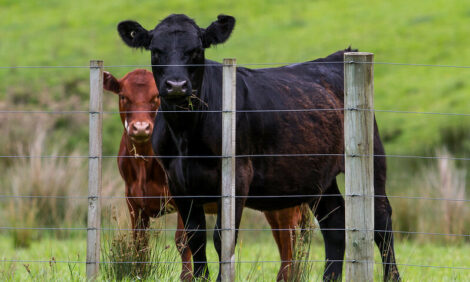



African opinion leaders joined Ceva’s ReproSymp to boost cattle productivity and narrow the gap in growing need for meat and milk in Africa
With Africa’s population predicted to grow from 810 million in 2000, to 4.5 billion by 2100 [2], improved methods of livestock production are seen as an important factor in the bid to meet the growing demand for safe and sustainable protein in diets.A white paper published by the World Economic Forum in January 2019 [1], highlights the fact that 151 million children under the age of five are stunted in size and that the “vast majority of undernourished people lack sufficient quantities of the proteins and micronutrients readily available in nutrient-dense animal-sourced foods - meat, milk/dairy, fish and eggs - to lead healthy and productive lives.”
To help address the growing need for locally produced meat and milk, innovations in cattle reproduction have been highlighted at a forum held in Kigali, Rwanda in February 2019. Key opinion leaders from 18 African countries joined reproduction experts to take part in ReproSymp staged by the global veterinary health company, Ceva.
The forum included a theoretical session presenting technical solutions from experts in genetics and reproduction. Feedback from local stakeholders was also an opportunity for interaction among participants and highlighted the key success factors for a sustainable approach to genetic improvement in Africa. The ReproSymp ended with a practical session held at a local commercial dairy farm.
As Marjorie Bouchier, Ruminant Manager for Ceva Africa, explained: “The technical solutions and experiences presented by Ceva and its partners at this forum have led to a better understanding of the need for a global zootechnical approach to reproduction. This approach must be specifically tailored to best meet the specificities encountered in Africa. The development of these techniques will also enhance the ability of African farmers to produce more meat and dairy products, instead of relying on foreign imports which are currently used to help meet the increasing demands of consumers.”
Ceva is an acknowledged global leader in the management of cattle reproduction. By working with renowned reproduction and genetics companies – such as IMV Imaging, IMV Technologies, Coopex and Illumina - locally relevant solutions have been and are being developed and made available. For example, artificial insemination has great promise to help Africa’s cattle breeders to improve the genetics and thereby the productivity of their herds. Ceva’s oestrous synchronisation and other reproductive management products can significantly improve the efficiency and effectiveness of AI. In many African countries, pregnancy rates following AI are indeed much lower and the interval between calving much longer than in herds in more developed regions.
References:
[1] www3.weforum.org/docs/White_Paper_Livestock_Emerging%20Economies.pdf
[2] United Nations Department of Economic and Social Affairs, "World population projected to reach 9.8 billion in 2050, and 11.2
billion in 2100", 21 June 2017, https://www.un.org/development/desa/en/news/population/world-population-prospects-2017.
html.
| TheCattleSite News Desk |



